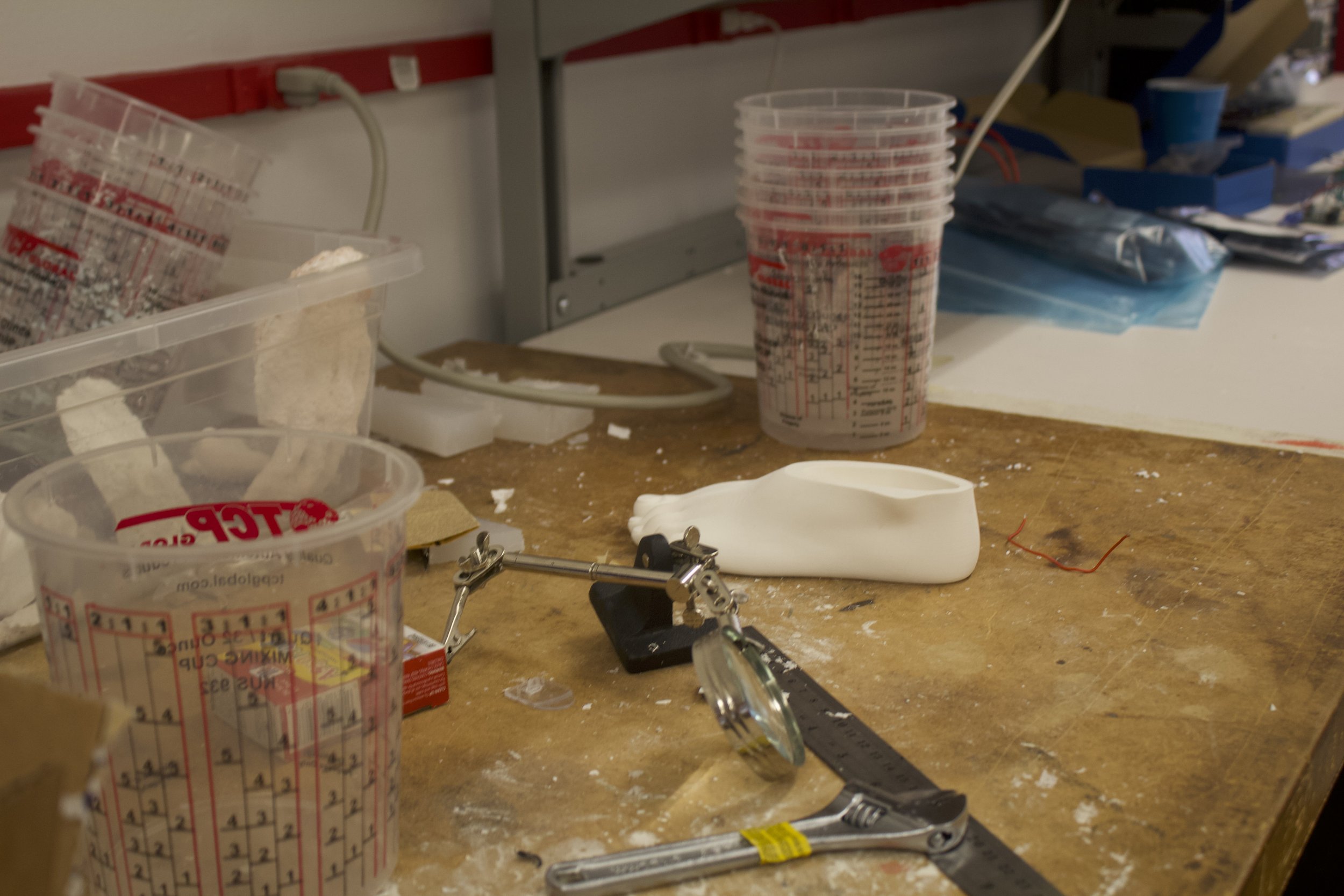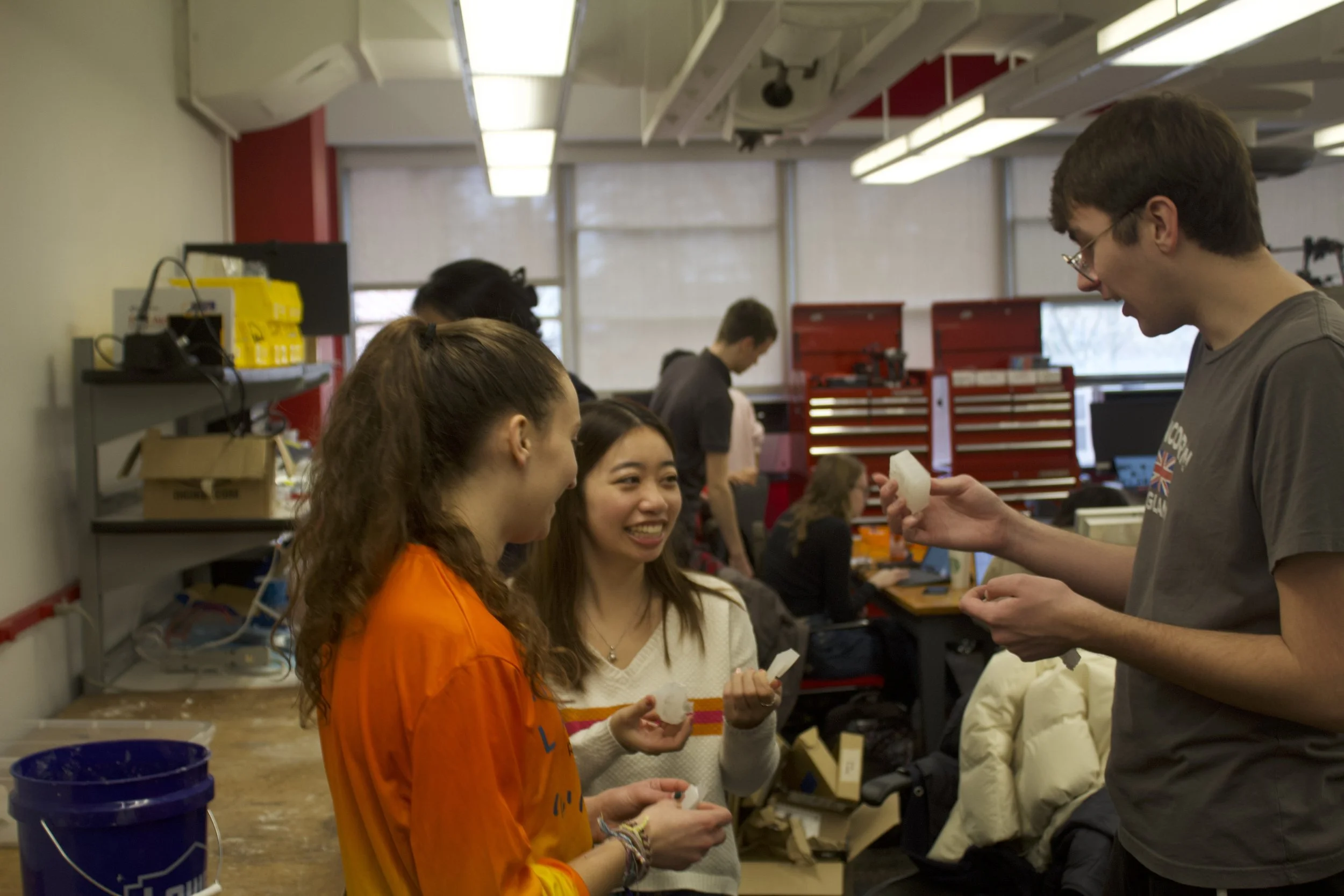
Integrative Design
2ft Prosthetics (Fall 2022 - Present)
The Integrative Design subteam is partnering with 2ft Prosthetics to develop the OneSize foot, an affordable and anatomically accurate prosthetic that clinics in low-resource settings can fabricate on-site from polypropylene blocks and custom-shape to each patient. We finalized a streamlined fabrication manual and created CAD drawings to supplement the design images for clarity and consistency. We are now working to develop a clinical study in the Dominican Republic to evaluate the foot’s stability, comfort, and real-world performance in the communities we serve.
Solar Ear (Spring 2025 - present
The Integrative Design Subteam in partnership with Solar Ear is developing a Kinetic Energy Harvesting Hearing Aid that provides a sustainable alternative to battery-dependent devices. The new device uses micro-pendulums, flywheels, or other kinetic energy systems that capture energy from everyday movement, such as walking or head motion, and convert it into stored electricity. This eliminates reliance on constant recharging and reduces the cost burden of disposable batteries. By integrating user-centered design and extending access to children in low-resource settings, the team aims to deliver a comfortable, durable, and empowering hearing solution that supports children’s communication, learning, and long-term educational success.
BYU/2ft Prosthetics Collaboration (Spring 2025 - Present)
The Integrative Design subteam is partnering with 2ft Prosthetics and BYU to work on a new prosthetic socket and cover, starting with 3D modeling and CAD built on BYU’s socket, cover, and connection system. The team is exploring a ventilated lattice structure to improve comfort and airflow while maintaining support.
Calmer (Spring 2021 - Fall 2022)
The Integrative Design Subteam partnered with UBC’s Dr. Liisa Holsti to adapt a NICU device to manage preterm infants’ procedure-related pain by simulating kangaroo mother care, specifically for low- and middle-income settings. The team built a compact, cot-sized unit that reproduces maternal cues using a camshaft-driven platform providing a 1 cm “breathing” motion and an Arduino-controlled heartbeat inside a durable acrylic enclosure. The device was optimized for affordability, portability, and intermittent-power environments, and the completed design can be fabricated for about $300 in readily available parts.
Vaccine Fridge (Spring 2017 - Fall 2019)
The Cornell Engineering World Health integrative design team developed a Passive Cooling Device (PCD) for vaccine transportation to remote regions in developing countries.
This lightweight cylindrical cooler is constructed with a 3D-printed plastic shell, lined with aerogel insulation, and designed to carry over 130 vaccine doses while maintaining the critical 2–8 °C range for more than 16 hours without electricity. Its compact form allows transport by foot, motorbike, or mobile clinic, expanding vaccine outreach coverage for NGOs and healthcare workers. The team is prototyping and testing this portable design to provide a low-cost, durable alternative to existing heavy and expensive refrigeration systems.







